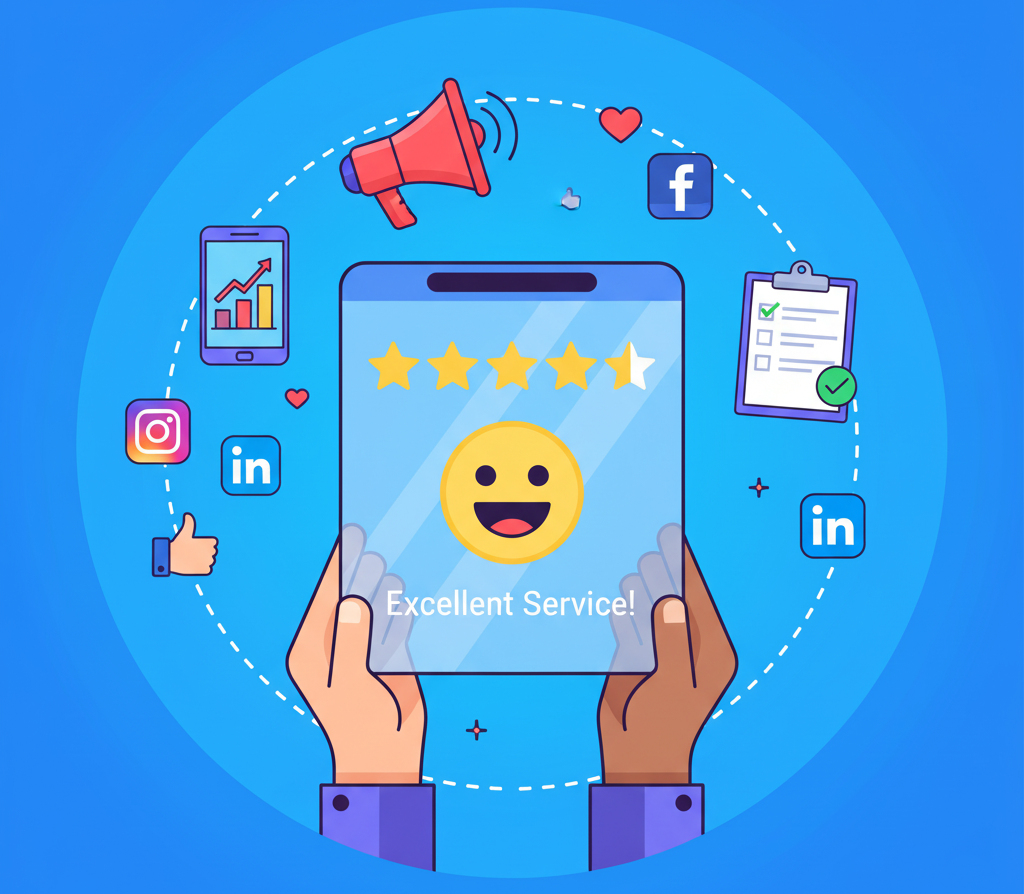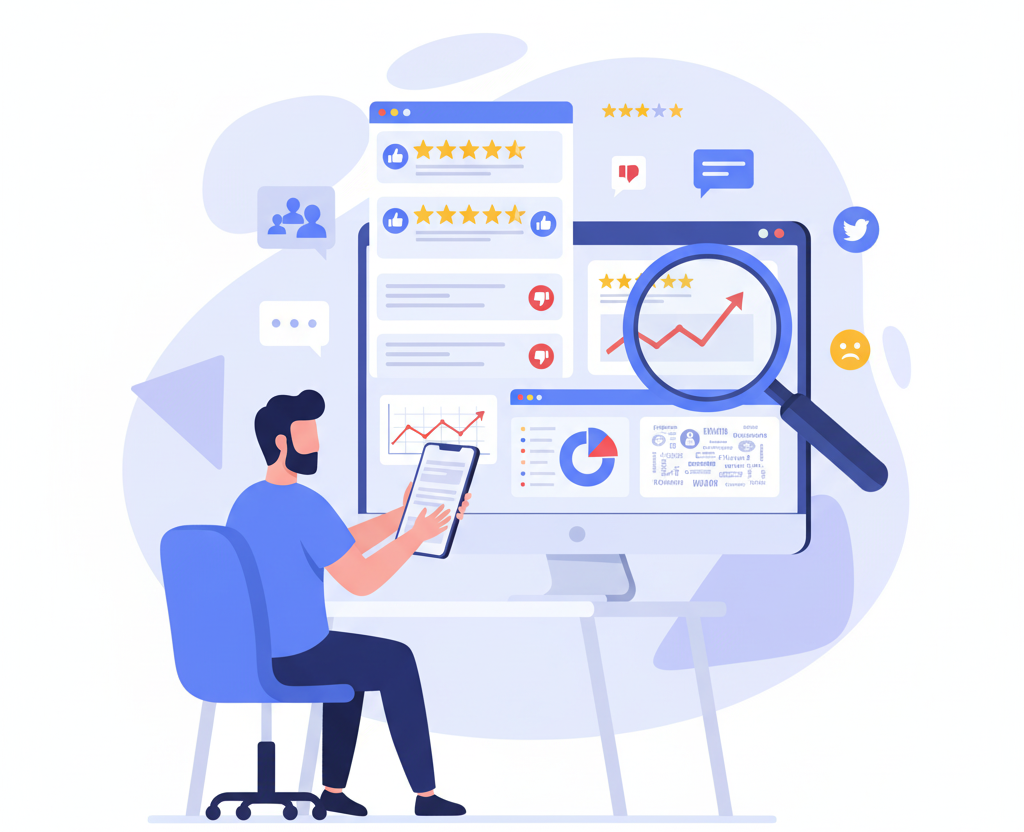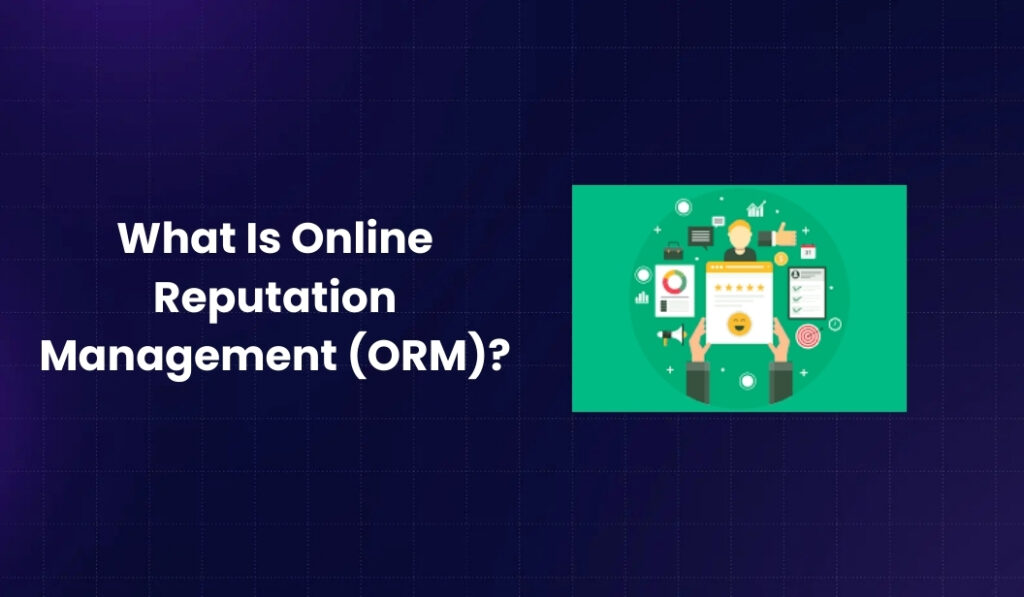In today’s digital world, almost everything we do leaves a trace online. Whether it’s a customer review, a social media comment, or a blog mentioning your business, your reputation is being shaped every single day. For businesses and individuals, what people see about you online often determines how much they trust you.
This is where Online Reputation Management (ORM) comes in. ORM is all about controlling, improving, and maintaining how people see you or your brand on the internet. In this guide, we’ll cover what ORM really means, why it’s important, how it works, and the best strategies and tools you can use to protect and grow your reputation.
What Is Online Reputation Management (ORM)?

Online Reputation Management (ORM) is the process of monitoring and influencing how a person, company, or brand is perceived online.
Think of it like this: whenever someone searches for your business on Google or checks reviews on platforms like Yelp, TripAdvisor, or Google Maps, what they find creates an impression. ORM makes sure that impression is positive, trustworthy, and accurate.
ORM vs. Traditional PR
Many people confuse ORM with public relations (PR). While both deal with reputation, they are different:
- PR is about building a positive image through media coverage, press releases, and events.
- ORM focuses mainly on digital channels—search results, social media, review sites, and forums.
In short, PR is proactive storytelling, while ORM is both proactive and reactive, ensuring negative information doesn’t damage your brand.
Why Is Online Reputation Management Important?

The importance of ORM cannot be overstated. Here’s why it matters:
1. Builds Trust and Credibility
People trust businesses that have good reviews, strong social proof, and a positive online presence. A single negative story can hurt credibility if not managed properly.
2. Influences Purchase Decisions
- 90% of customers read online reviews before buying.
- Positive ratings increase sales, while negative feedback can drive customers to competitors.
3. Affects Search Engine Rankings
Search engines like Google take into account reviews, ratings, and brand mentions. A strong reputation improves SEO and helps your business appear higher in search results.
4. Impacts Long-Term Brand Image
What people see online today becomes part of your brand’s identity tomorrow. Proactive ORM ensures your brand is always positioned positively.
How Does Online Reputation Management Work?
ORM is not a one-time activity—it’s an ongoing process. Here’s how it usually works:
- Monitoring: Keeping an eye on all mentions of your brand across social media, review sites, forums, and search engines.
- Responding: Engaging with reviews, comments, and questions quickly and professionally.
- Publishing Positive Content: Creating blogs, press releases, and social posts that highlight your strengths.
- SEO Optimization: Making sure positive results rank higher than negative ones in search engines.
- Crisis Handling: Managing unexpected negative publicity or viral issues with transparency and speed.
Key Components of ORM

Let’s break down the main elements of ORM:
1. Social Media Management
Social platforms like Facebook, Instagram, LinkedIn, and X (Twitter) are where conversations happen. Monitoring comments, mentions, and messages is key.
2. Review Management
Encouraging happy customers to leave reviews and addressing negative ones politely. Responding shows you care.
3. Content Marketing & Blogging
Publishing useful and positive content that positions you as an expert while improving search visibility.
4. Crisis Management
When negative news spreads, ORM ensures quick and professional handling to reduce long-term damage.
5. SEO for Reputation
SEO strategies help push positive content higher in Google results while pushing negative mentions down.
Benefits of Online Reputation Management

Investing in ORM comes with powerful benefits:
- Trust & Credibility: Builds confidence in your business.
- Higher Sales: Positive reviews directly influence purchase decisions.
- Customer Loyalty: Engaged and respected customers stick around longer.
- Employer Branding: Attracts top talent who want to work for reputable companies.
- SEO Boost: Improves overall online visibility.
Common Challenges in ORM
Even with the best efforts, ORM can be tricky. Some common challenges include:
- Fake Reviews: Competitors or trolls posting false negative reviews.
- Viral Backlash: One bad customer experience spreading quickly on social media.
- Competitor Attacks: Rival businesses trying to damage your reputation.
- Limited Control: You cannot fully control what’s posted on third-party platforms.
The key is to respond smartly and stay proactive.
Strategies & Best Practices for Effective ORM

Here are some proven ORM strategies:
- Monitor Your Brand Continuously
-
-
- Use tools to track mentions and reviews in real time.
-
- Respond Professionally to Feedback
-
-
- Thank happy customers, address complaints politely.
-
- Encourage Reviews from Happy Customers
-
-
- More positive reviews balance out occasional negative ones.
-
- Publish Positive Content Regularly
-
-
- Blogs, press releases, and social updates help shape brand perception.
-
- Train Employees
-
-
- Every employee represents your brand online and offline.
-
- Prepare for Crises
-
- Have a communication plan ready for handling PR disasters.
Popular Tools for ORM
Several tools make ORM easier. Here are some popular ones:
- Google Alerts: Free tool to track brand mentions.
- SEMrush Brand Monitoring: Tracks online mentions and reputation.
- Hootsuite / Sprout Social: Manage social media engagement.
- ReviewTrackers / Trustpilot: Review monitoring and management.
- Brandwatch / Mention: Advanced analytics for brand monitoring.
Online Reputation Management for Businesses vs. Individuals
ORM is important not only for companies but also for individuals:
For Businesses
- Builds customer trust.
- Increases sales.
- Improves visibility against competitors.
For Individuals
- Job seekers: Employers often check online profiles before hiring.
- Entrepreneurs: Personal branding affects how investors and customers view you.
- Leaders: Reputation impacts credibility and authority.
Conclusion
Online Reputation Management (ORM) is no longer optional—it’s essential. In a world where people search online before making decisions, your reputation is your most valuable asset.
To summarize:
- ORM ensures trust, credibility, and visibility.
- It involves monitoring, responding, publishing, and optimizing.
- A good reputation attracts customers, employees, and opportunities.
The time to start managing your online reputation is now. Be proactive, not reactive.

Passionate about blogging and focused on elevating brand visibility through strategic SEO and digital marketing. Always tuned in to the latest trends, I’m dedicated to maximizing engagement and delivering measurable ROI in the dynamic world of digital marketing. Let’s connect and unlock new opportunities together!

